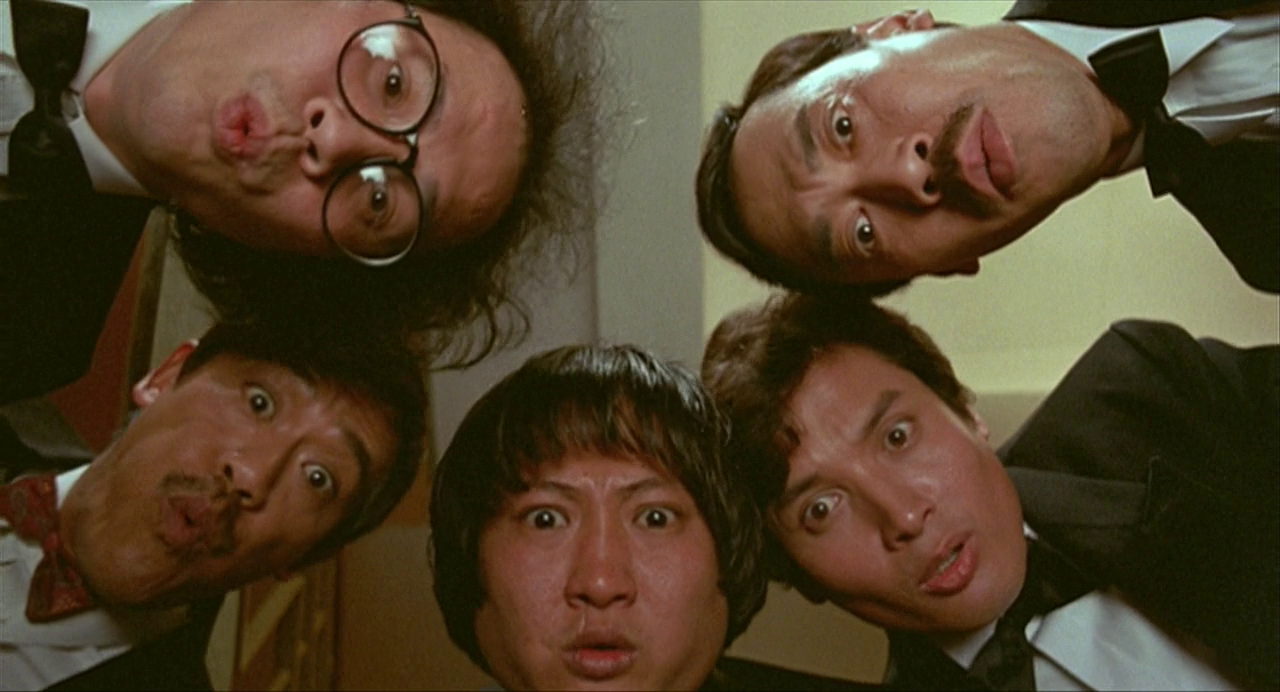Winners & Sinners (Sammo Hung, 1983)

More a straight comedy than any of the other Sammo Hung films I’ve seen, though it does contain some interesting stunts. An amiable hangout movie, with Sammo and his buddies just playing around with goofy jokes and the barest necessities of a plot. Sammo and his four ex-con friends form a cleaning company and accidentally find themselves under attack by a gang of counterfeiters. The first half of the film mostly revolves around the group competing for the attention of Cherie Chung, who naturally enough falls for Sammo, the only one who isn’t trying to get her. Sammo is the bumbling butt of their jokes, but he takes it all with good cheer. When Chung discovers that he is, in fact, an extremely skilled martial artist (of course), she asks him why he lets his friends pick on him when he could easily beat them all up. He replies that when he was a kid, he used to beat people up all the time, but he was alone. Now, even though they make fun of him, at least he has friends. It’s as sad a story as it is emotionally honest.
Jackie Chan is awkwardly wedged into the film as a cop who causes excessive amounts of damage to both suspects and property. Yuen Biao shows up to fight him in a completely random scene, one that serves only two purposes: getting Sammo’s pals some screen time and showing off some cool kung fu. Chan also features in the film’s most famous sequence: a high speed chase with him on roller skates going after a car on a freeway. This ends in possibly the greatest image in any Sammo Hung film: a massive traffic pile up that keeps going and going, like the one we only get to see the aftermath of in Godard’s Weekend. Like Two Tars or the original Gone in 60 Seconds, it captures the anarchic, purely cinematic glory of automobile destruction.
Hong Kong comedies of the 80s and 90s can be difficult for American audiences at times, not because they’re dumb, or even for cultural or translational reasons (as can be the case with some of Stephen Chow’s more pun-reliant films, which are impossible to effectively convey in English) but because the comedy is so relentlessly goofy, its stars so obviously willing to do anything for a laugh, regardless of how ridiculous it makes them look. Sammo Hung spends this film in the least flattering possible outfits for his portly frame: a black catsuit, a too-small sailor’s outfit, a bright red jogging suit. Chan roller skates in a banana-yellow tracksuit topped by a yellow helmet. There’s a lengthy scene where the gang convinces Richard Ng that he’s managed to turn himself invisible, so he wanders around the house completely naked while everyone pretends they can’t see him. This kind of effort isn’t cool, we value distance and irony, not silliness and wordplay. Outside of a brief flirtation with Jim Carrey 20 years ago, when was the last time physical comedy was the least bit respectable in America? A common reaction I see from Americans who aren’t yet obsessive about Hong Kong movies is that the action is great and the comedy is something to be ignored, if possible. But I find it infectious. The relentless good cheer, the obvious fun the filmmakers have in putting it together, the honesty of the desire to just make people laugh: it’s the joy of making movies.
